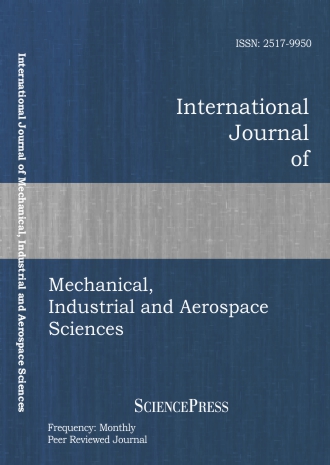
Scholarly
Volume:5, Issue: 12, 2011 Page No: 2694 - 2697
International Journal of Mechanical, Industrial and Aerospace Sciences
ISSN: 2517-9950
1525 Downloads
Feasibility Study on Designing a Flat Loop Heat Pipe (LHP) to Recover the Heat from Exhaust of a Gas Turbine
A theoretical study is conducted to design and explore the effect of different parameters such as heat loads, the tube size of piping system, wick thickness, porosity and hole size on the performance and capability of a Loop Heat Pipe(LHP). This paper presents a steady state model that describes the different phenomena inside a LHP. Loop Heat Pipes(LHPs) are two-phase heat transfer devices with capillary pumping of a working fluid. By their original design comparing with heat pipes and special properties of the capillary structure, they-re capable of transferring heat efficiency for distances up to several meters at any orientation in the gravity field, or to several meters in a horizontal position. This theoretical model is described by different relations to satisfy important limits such as capillary and nucleate boiling. An algorithm is developed to predict the size of the LHP satisfying the limitations mentioned above for a wide range of applied loads. Finally, to assess and evaluate the algorithm and all the relations considered, we have used to design a new kind of LHP to recover the heat from the exhaust of an actual Gas Turbine. By finding the results, it showed that we can use the LHP as a very high efficient device to recover the heat even in high amount of loads(exhaust of a gas turbine). The sizes of all parts of the LHP were obtained using the developed algorithm.
Authors:
References:
[1] M. Hamdan, F. M. Gerner, H. T. Henderson, "Steady State Model of a